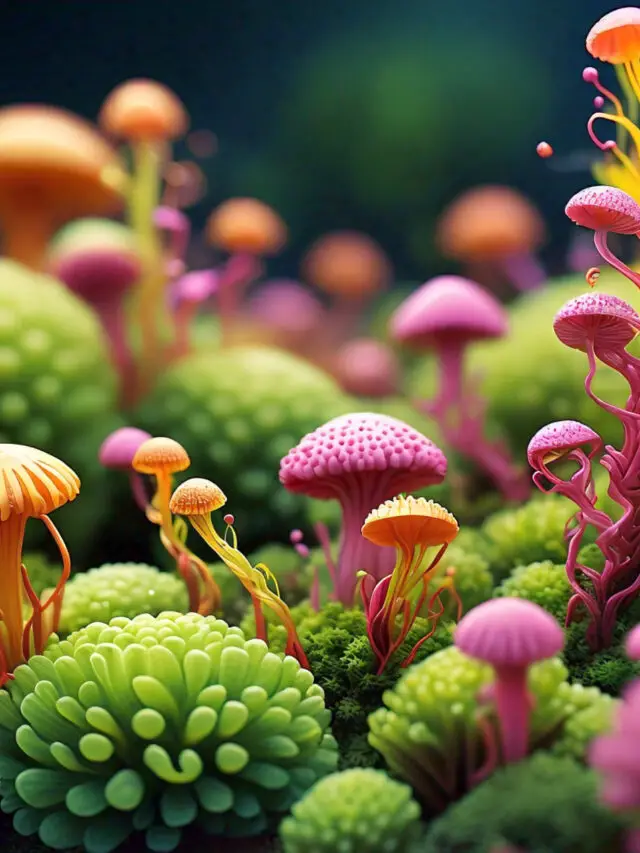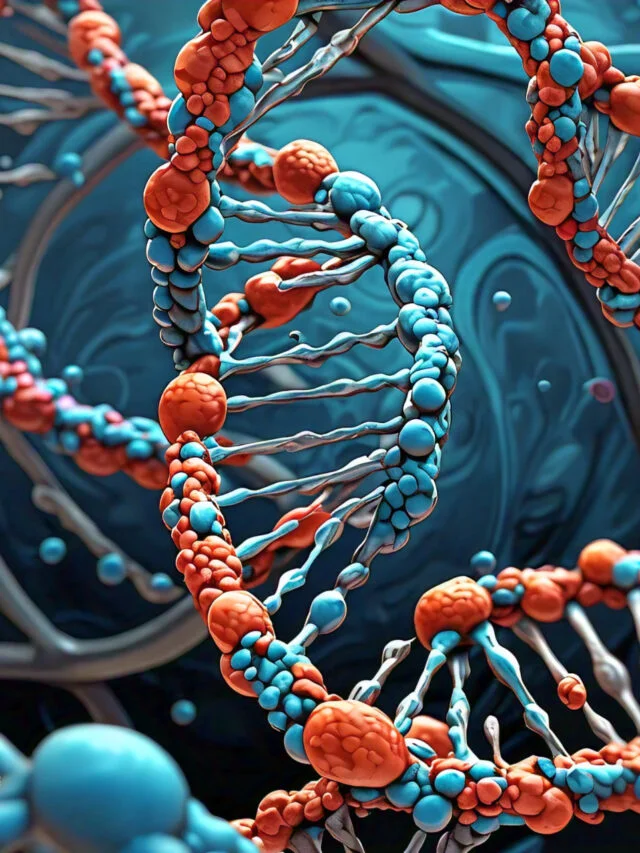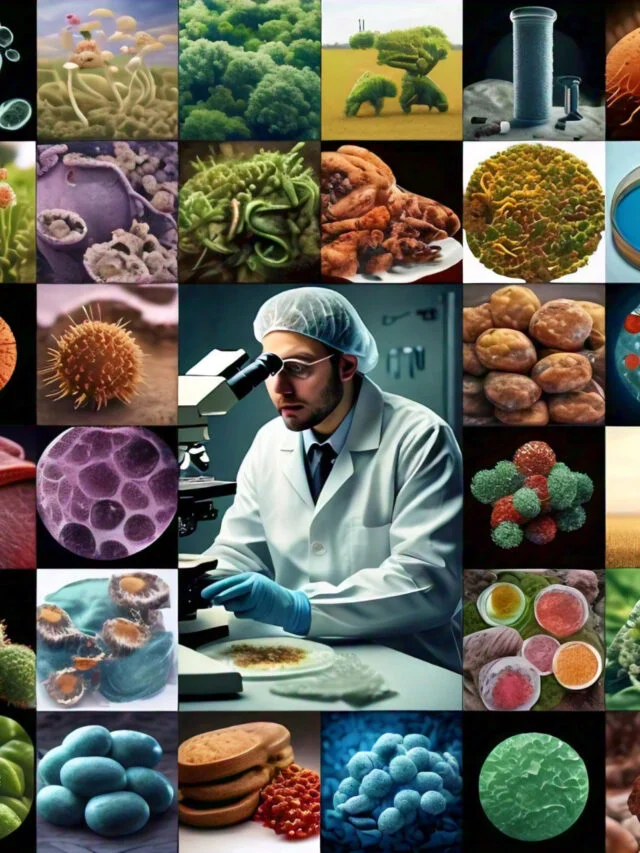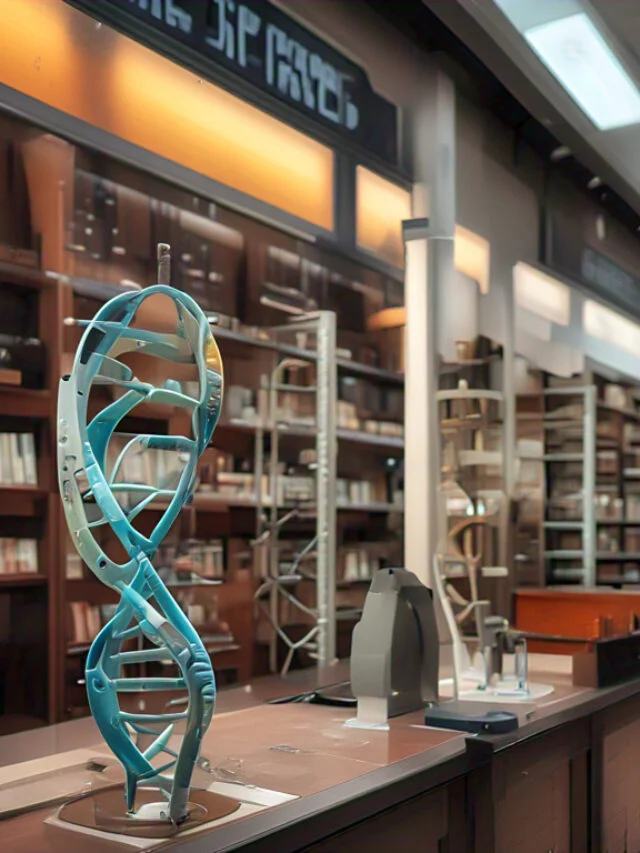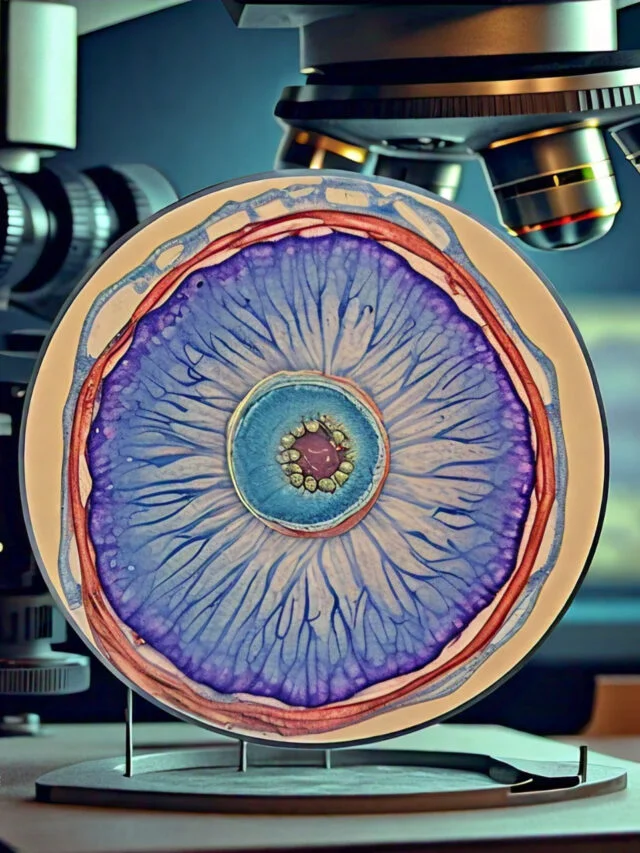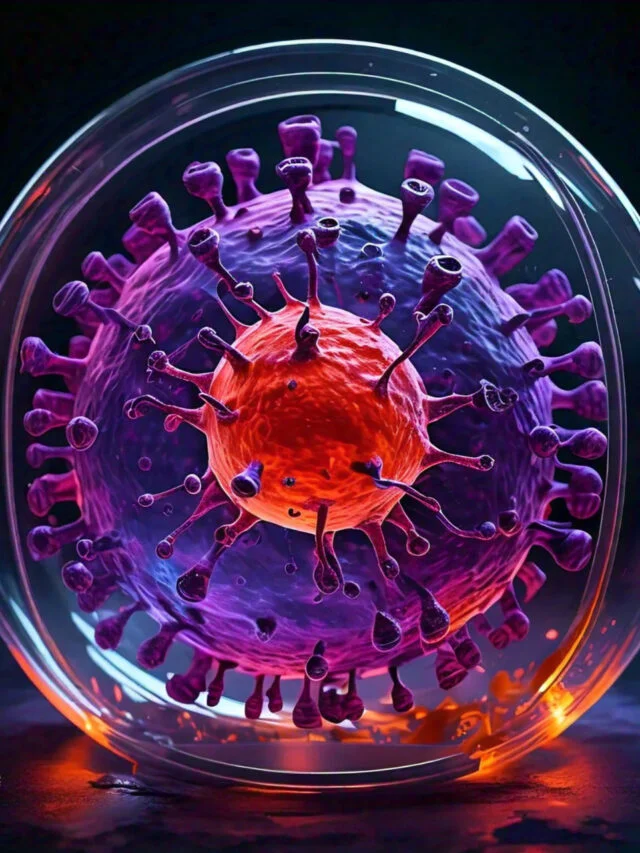Contents
What is Developmental Biology?
Developmental biology is a branch of biology that studies the processes and mechanisms by which multicellular organisms grow, develop, and reach their final form from a single fertilized egg or embryo. It examines how cells differentiate and specialize to form different tissues and organs, as well as how these structures are patterned and organized during development.
Developmental biology seeks to understand the fundamental principles underlying embryonic development, including cell division, cell differentiation, cell signaling, and morphogenesis (the shaping of tissues and organs). It investigates the genetic and molecular mechanisms that regulate these processes and how they interact with environmental factors.
The field of developmental biology encompasses a wide range of research topics, including fertilization, embryogenesis, organogenesis, tissue regeneration, stem cell biology, and evolutionary developmental biology (evo-devo). It draws upon techniques from genetics, molecular biology, biochemistry, microscopy, and computational biology to investigate the complex processes that give rise to the diversity of organisms we observe in nature.
By studying developmental biology, scientists aim to gain insights into normal development and understand how developmental processes can go awry, leading to birth defects, diseases, and disorders. This knowledge can have practical applications in areas such as regenerative medicine, tissue engineering, and understanding the genetic basis of human diseases.
Definition of developmental biology
Developmental biology is the study of how multicellular organisms grow, develop, and acquire their final form from a single fertilized egg or embryo, investigating the molecular, cellular, and genetic processes involved in this progression.
Interrelated Fields
The field of developmental biology is intricately connected to several other disciplines, forming a web of interrelated fields that contribute to a comprehensive understanding of life processes. These interrelated fields include:
- Molecular Biology: Molecular biology provides the foundation for understanding the molecular mechanisms underlying development. It investigates the role of genes, DNA, RNA, and proteins in controlling cellular processes during embryonic development.
- Physiology: Physiology explores the functions and activities of living organisms and their parts. It contributes to developmental biology by studying the physiological processes that occur during development, such as the establishment of organ systems, tissue growth, and the regulation of physiological functions.
- Cell Biology: Cell biology focuses on the structure, function, and behavior of cells, which are the basic building blocks of life. It is intimately connected to developmental biology as it investigates how cells divide, differentiate, and interact to form tissues and organs during development.
- Anatomy: Anatomy is the study of the structure of organisms and their parts. It complements developmental biology by providing detailed knowledge of the organization and arrangement of tissues and organs, helping to elucidate how they develop and function.
- Cancer Research: Cancer research investigates the causes, development, and treatment of cancer. As developmental biology unravels the processes that control normal development, it also sheds light on the aberrant mechanisms that contribute to cancer formation and progression.
- Neurobiology: Neurobiology explores the structure and function of the nervous system. It intersects with developmental biology by studying the formation and maturation of the brain and nervous system during embryonic development, as well as the mechanisms underlying neural plasticity and behavior.
- Immunology: Immunology investigates the immune system and its response to pathogens and foreign substances. It intersects with developmental biology as it explores how the immune system develops and matures during embryogenesis and throughout life.
- Ecology: Ecology is the study of the relationships between organisms and their environment. It contributes to developmental biology by investigating how environmental factors influence developmental processes and the evolution of developmental strategies in different ecological contexts.
- Evolutionary Biology: Evolutionary biology explores the processes and patterns of biological evolution. It intersects with developmental biology by investigating how developmental processes and mechanisms have evolved over time and how they contribute to the generation of biodiversity.
The interplay between these fields creates a dynamic and multidisciplinary approach, allowing researchers to gain a more holistic understanding of the complexities of life, from the molecular level to the organismal level. By integrating knowledge from these interrelated fields, scientists can make significant strides in unraveling the mysteries of development, disease, and the diversity of life forms.
Areas of Research in Development biology
The field of developmental biology encompasses various areas of research that shed light on the intricate processes and mechanisms underlying the development of organisms. Some of these key areas of research include:
- Molecular Genetics of Development: This area focuses on understanding how genes and their interactions regulate developmental processes. Researchers investigate the specific genes involved in different developmental events, their functions, and how they are controlled.
- Control of Gene Expression: Gene expression refers to the process by which information in genes is converted into functional proteins. Researchers explore the regulatory mechanisms that control when and where genes are turned on or off during development, ensuring proper timing and spatial organization of gene expression.
- Cell Interactions and Cell-Matrix Interactions: Development relies on the interactions between cells and their surrounding environment, including other cells and the extracellular matrix. Scientists study how cells communicate and interact with one another, as well as with the extracellular matrix, to coordinate their behavior and contribute to tissue and organ formation.
- Mechanisms of Differentiation: Differentiation is the process by which cells become specialized to perform specific functions. Researchers investigate the molecular mechanisms that drive cell differentiation, including the activation and repression of specific genes and the signaling pathways involved.
- Growth Factors and Oncogenes: Growth factors are molecules that regulate cell growth, proliferation, and survival. Oncogenes, on the other hand, are genes that have the potential to cause cancer when mutated or dysregulated. Understanding the roles of growth factors and oncogenes in development is crucial for unraveling the mechanisms underlying both normal development and abnormal conditions such as cancer.
- Regulation of Stem Cell Populations: Stem cells have the unique ability to self-renew and differentiate into various cell types. Scientists study the regulation of stem cell populations to understand how they are maintained and directed towards specific cell lineages during development, as well as in tissue regeneration and repair.
- Evolution of Developmental Control: This area explores how developmental processes and mechanisms have evolved across different species. By comparing the developmental pathways and genetic regulation among organisms, researchers gain insights into the evolutionary origins and diversification of developmental programs.
- Gametogenesis and Fertilization: Gametogenesis refers to the process of forming sperm and eggs (gametes), while fertilization is the fusion of gametes to initiate development. Scientists investigate the molecular and cellular events involved in gametogenesis and fertilization, including the regulation of meiosis, gamete maturation, and the molecular interactions during fertilization.
Other areas of research within developmental biology include transcriptional control mechanisms, embryonic patterning, cell-cell interactions, growth factors and signal transduction, and regulatory hierarchies in developing plants and animals. Each of these areas contributes to a deeper understanding of the complex processes that shape organisms from the earliest stages of development to their final form.
Significance of Developmental Biology Studies
Developmental biology studies have significant implications and contribute to our understanding of various aspects of life and organisms. Some of the key significance of developmental biology studies include:
- Explaining Organismal Complexity: Developmental biology unravels the intricate processes involved in generating the diverse shapes, sizes, and structural features of organisms. It sheds light on how interactions between genes, cells, and tissues give rise to the heterogeneous characteristics observed throughout an organism’s life cycle. By studying these processes, scientists can gain insights into the mechanisms responsible for the incredible diversity seen in nature.
- Understanding Organism Building: Developmental biology provides a comprehensive understanding of the molecular, genetic, cellular, and integrative aspects involved in building an organism. It investigates how genes are activated or silenced, how cells interact and differentiate, and how tissues and organs are patterned and organized. This knowledge is fundamental for deciphering the complexity of life and appreciating the coordinated processes that contribute to an organism’s development.
- Insight into Developmental Abnormalities and Diseases: Knowledge of normal developmental processes is crucial for understanding developmental abnormalities and diseases. By studying how development can go awry, developmental biologists gain insights into the underlying causes of congenital disorders, birth defects, and developmental abnormalities. Furthermore, developmental biology provides insights into the molecular and cellular basis of diseases such as cancer, which can arise from dysregulation of developmental processes.
- Relevance to Evolutionary Understanding: Developmental biology has attracted the attention of philosophers of biology due to its potential relevance for understanding evolution. The study of development sheds light on the evolutionary origins of diverse traits and structures seen across species. By investigating how changes in developmental processes contribute to the evolution of novel features, scientists can gain insights into the mechanisms driving evolutionary change. This interdisciplinary approach helps bridge the gap between genetics and evolutionary biology, challenging reductionist genetic explanations of evolution.
Overall, the significance of developmental biology studies lies in their ability to unravel the complexity of life, from the molecular mechanisms underlying development to the diversity of structures and functions observed in organisms. This knowledge has broad implications, ranging from advancing our understanding of basic biological processes to informing medical research and evolutionary theory.
Developmental Biology Impact Factor
The impact factor of a scientific journal is a metric used to measure the average number of citations that articles published in that journal receive over a specific period. The impact factor indicates the influence and significance of a journal within its field.
As an AI language model, I don’t have access to real-time data or the ability to browse the internet. Therefore, I cannot provide you with the current impact factor of developmental biology journals. However, developmental biology is a well-established and highly regarded field, and there are several prestigious journals that publish research in this area. Some notable journals in developmental biology include Developmental Cell, Development, Developmental Biology, and Current Topics in Developmental Biology. You can check the latest impact factors of these journals and others by referring to reliable sources such as the Journal Citation Reports (JCR) or websites that track journal impact factors.
What is morphogenesis in developmental biology?
Morphogenesis is a key process in developmental biology that refers to the creation of the three-dimensional shape and structure of an organism during its development. It encompasses the cellular and molecular mechanisms that drive the organization and arrangement of cells and tissues to form organs, body parts, and ultimately the entire organism.
During morphogenesis, cells undergo various processes such as cell division, cell movement, changes in cell shape, and cell differentiation to generate the specific structures of the body. These processes are tightly regulated and coordinated by a complex interplay of genetic and environmental factors.
Several important mechanisms contribute to morphogenesis. One of the fundamental processes is cell signaling, which involves the exchange of chemical signals between cells to coordinate their behavior and guide their movements. Cell adhesion molecules play a crucial role in the attachment and cohesion of cells, enabling the formation of tissues and organs.
Another key mechanism is cell migration, where cells move and rearrange themselves to establish the correct spatial relationships. Cell migration can be driven by a variety of factors, including chemical gradients, mechanical forces, and interactions with neighboring cells.
In addition to cell movement, changes in cell shape and size are also critical for morphogenesis. This can occur through processes such as cell elongation, cell contraction, and changes in cell adhesion properties. These changes are often mediated by the cytoskeleton, a network of protein filaments within cells that provide structural support and enable cellular movements.
Overall, morphogenesis is a complex and dynamic process that involves the precise coordination of multiple cellular and molecular events. By studying morphogenesis, developmental biologists aim to understand how genetic and environmental factors shape the form and structure of organisms, providing insights into both normal development and developmental disorders.
Applications of Developmental Biology
Developmental biology has numerous applications across various fields, offering practical benefits and contributing to advancements in scientific research, medicine, and biotechnology. Some key applications of developmental biology include:
- Regenerative Medicine: Developmental biology provides insights into the processes of tissue and organ development. This knowledge is crucial for regenerative medicine, where scientists aim to restore or replace damaged or diseased tissues and organs. By understanding the mechanisms of cellular differentiation, growth, and tissue organization, researchers can develop strategies to stimulate tissue regeneration and repair.
- Birth Defect Prevention and Treatment: Developmental biology plays a vital role in understanding the causes of birth defects. By studying the molecular and cellular processes underlying normal development, researchers can identify potential genetic and environmental factors that contribute to developmental abnormalities. This knowledge aids in the prevention, diagnosis, and treatment of birth defects, ultimately improving the health and well-being of individuals affected by these conditions.
- Stem Cell Research: Stem cells have the remarkable ability to differentiate into various cell types, making them invaluable for regenerative medicine and disease modeling. Developmental biology helps researchers understand the mechanisms governing stem cell behavior and lineage specification. This knowledge enhances the isolation, expansion, and directed differentiation of stem cells, advancing their potential therapeutic applications.
- Drug Discovery and Toxicity Testing: Developmental biology provides a framework for studying the effects of drugs and toxic substances on development. By using model organisms and in vitro systems, researchers can evaluate the developmental toxicity of chemicals, identify potential teratogens (substances that cause birth defects), and improve safety assessments of pharmaceutical compounds. This knowledge aids in the development of safer drugs and regulatory guidelines.
- Evolutionary Studies: Developmental biology contributes to our understanding of the evolutionary processes that shape organisms. By comparing the development of different species, researchers can uncover conserved genetic and molecular mechanisms, as well as identify key evolutionary innovations. This knowledge enhances our understanding of evolutionary patterns, phylogenetic relationships, and the origins of biological diversity.
- Agricultural and Crop Improvement: Developmental biology has practical applications in agriculture and crop improvement. By studying the processes that govern plant development, researchers can manipulate plant growth, enhance crop yields, improve stress tolerance, and optimize plant architecture. This knowledge helps in developing sustainable agriculture practices and addressing global food security challenges.
- Biotechnology and Genetic Engineering: Developmental biology is essential for genetic engineering and biotechnological applications. By understanding the molecular and cellular mechanisms underlying development, scientists can manipulate gene expression, control developmental pathways, and engineer novel traits in organisms. This knowledge is applied in areas such as genetically modified organisms (GMOs), biopharmaceutical production, and the development of novel biotechnological tools and techniques.
These applications highlight the broad impact of developmental biology, ranging from medical advancements to environmental sustainability and agricultural innovation. The interdisciplinary nature of developmental biology enables its contributions to diverse scientific fields, driving progress and fostering a deeper understanding of life’s complexity.
FAQ
What is developmental biology?
Developmental biology is a branch of biology that studies the processes and mechanisms by which organisms grow and develop from a single cell into a complex multicellular organism.
What are the key stages of embryonic development?
Embryonic development typically consists of several key stages: fertilization, cleavage (cell division), gastrulation (formation of the three germ layers), organogenesis (formation of organs and tissues), and finally, growth and maturation.
What are stem cells, and why are they important in developmental biology?
Stem cells are undifferentiated cells that have the potential to develop into specialized cell types. They play a crucial role in embryonic development and tissue regeneration, and studying them helps scientists understand how cells differentiate and give rise to specific tissues and organs.
What is the role of genes in development?
Genes provide the instructions for the development of an organism. They regulate processes such as cell division, cell differentiation, and tissue formation, ultimately determining an organism’s characteristics.
What are homeotic genes?
Homeotic genes are a group of genes that control the development of body structures and organs in a specific pattern. They determine the identity and positioning of body segments and play a fundamental role in establishing the body plan of an organism.
What are signaling pathways, and how do they influence development?
Signaling pathways are intricate networks of molecular signals that regulate cellular behavior during development. They control processes such as cell growth, differentiation, and migration, ensuring that cells communicate and coordinate their activities correctly.
How does environmental influence affect development?
Environmental factors, such as temperature, nutrients, and chemical signals, can significantly impact developmental processes. They can modify gene expression, influence cell behavior, and contribute to the formation of specific structures or traits.
What are the causes and effects of developmental disorders?
Developmental disorders can result from genetic mutations, environmental factors, or a combination of both. They can affect various aspects of development, leading to abnormalities in organ formation, growth, or function.
How do scientists study development?
Scientists studying developmental biology employ various techniques, including genetic analysis, microscopy, cell culture, and molecular biology methods. They may also use model organisms, such as fruit flies, zebrafish, or mice, to investigate developmental processes.
How does developmental biology contribute to other fields of research?
Developmental biology provides insights into numerous areas, including regenerative medicine, evolutionary biology, and disease research. Understanding the mechanisms of development can help scientists better comprehend diseases, develop potential therapies, and shed light on the evolutionary history of organisms.

